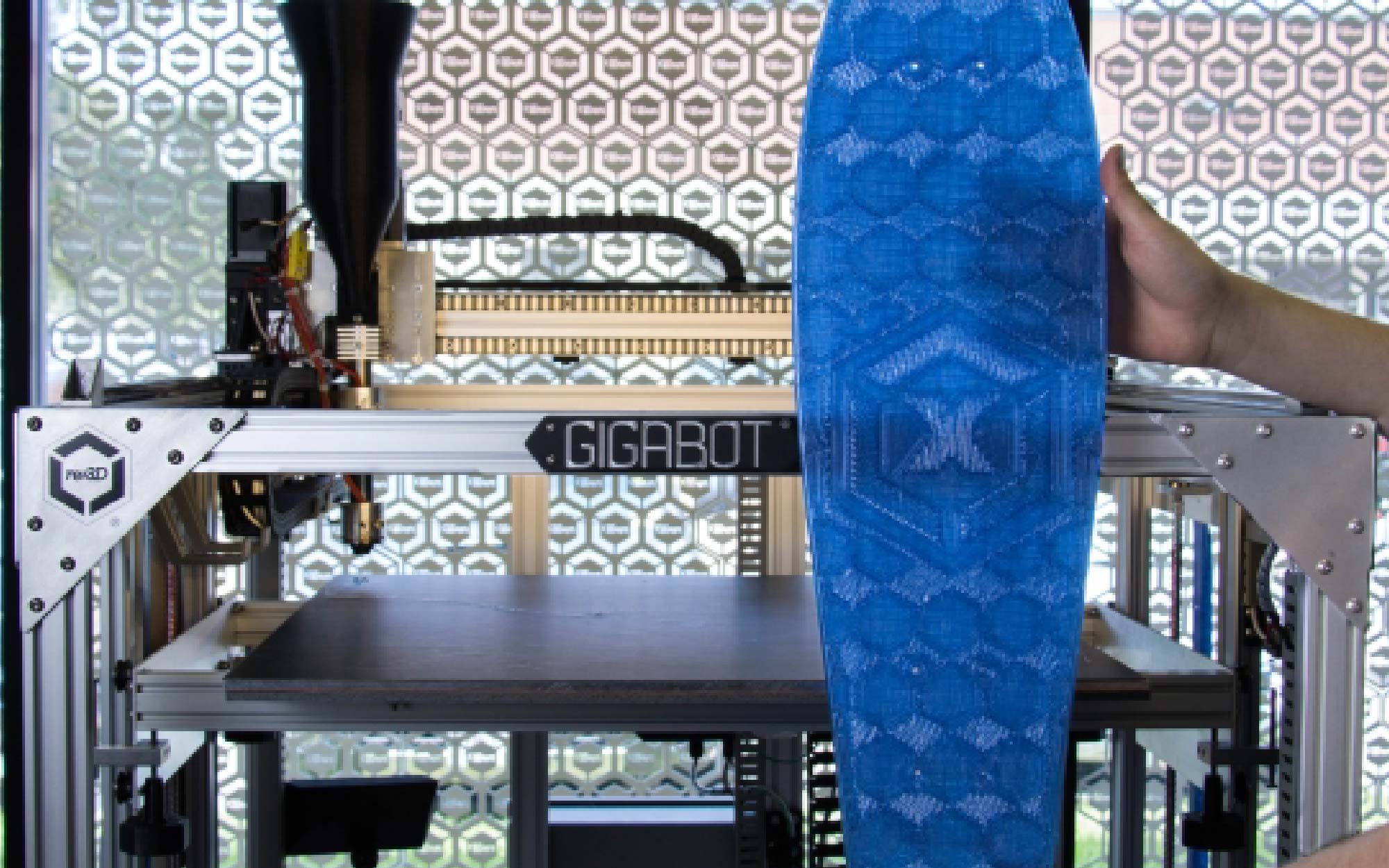We are thrilled to share that re:3D has received the NSF SBIR Phase II grant to further commercialize Gigabot X! You can view the official award here for more details on this $749,111.00 grant and also check out the latest video update on Gigabot X published last week (a complementary blog post is coming your way very soon as well to showcase these features). But for now, we just wanted to share the good news along with our deepest gratitude for each and every one of you out there who was an integral part of our journey to this milestone. Below you’ll find the official press release or you can download the PDF version of it here re:3d NSF SBIR Phase II Awardee Press Release.

re:3D Inc. Awarded Competitive Grant from the National Science Foundation
America’s Seed Fund Powered by NSF Provides Funding for R&D; Helps small businesses move innovations out of the lab and into the market
Houston, Texas April 30, 2019 – re:3D Inc. has been awarded a National Science Foundation (NSF) Small Business Innovation Research (SBIR) Phase II grant for $749,111 to commercialize innovative technology by conducting research and development (R&D) work on increasing maker manufacturing through 3D printing with reclaimed plastic.
re:3D manufactures large-scale, affordable 3D printers and most recently, printers printing from multiple types of plastic waste as made possible with the support of NSF SBIR. With headquarters in Texas and Puerto Rico, re:3D has 20+ employees who serve their customers in 55+ countries in industries such as healthcare, defense, manufacturing, art and more. Beyond creating 3D printers, re:3D also offers 3D printing contract services, design, education, consulting and custom 3D printer manufacturing in pursuit of decimating and cost and scale barriers to 3D printing while simultaneously transforming traditional supply chains and empowering more circular economies.
NSF SBIR support of this proposal is justified for the technology’s far-reaching potential. The two main impacts of such hardware are environmental: for the technologies’ potential to upcycle otherwise discarded post manufacturing or post-consumer waste, reduction in on-demand inventory holding, and condensed supply chains, and societal: for the technologies’ potential to create new jobs and enterprises along with the 3D printing ecosystem by enabling locally driven manufacturing, thus bringing jobs back to America.
“The National Science Foundation supports startups and small businesses with the most innovative, cutting-edge ideas that have the potential to become great commercial successes and make huge societal impacts,” said Graciela Narcho, Acting Director of the Division of Industrial Innovation and Partnerships at NSF. “We hope that seed funding will spark solutions to some of the most important challenges of our time across all areas of science and technology.”
“We are incredibly humbled to receive support from the NSF to continue our research to commercialize a full suite of affordable technologies that can enable 3D printing from virgin & reclaimed regrind and pellets,” said re:3D’s Co-Founder and Catalyst, Samantha Snabes. “During our Phase I grant we were able to create a prototype printer, now being sold in beta. Phase II will allow us to evolve the printer as a full-scale commercial offering, along with a grinding and drying system. We are eager to share our findings with the community as we Dream Big and Print Huge from Recyclables!”
Small businesses can receive up to $1.5 million in funding from NSF. Companies must first have received a Phase I award (up to $225,000) to become eligible to apply for a Phase II grant (up to $750,000) to further develop and commercialize the technology. Small businesses with Phase II grants are eligible to receive up to $500,000 in additional matching funds with qualifying third-party investment or sales.
Small businesses with innovative science and technology solutions and commercial potential across almost all areas of technology are encouraged to apply. All proposals submitted to the NSF SBIR/STTR program undergo a rigorous merit-based review process. NSF’s deadlines for Phase I small business proposals occur twice annually, in June and December.
To learn more about the NSF SBIR/STTR program, visit: seedfund.nsf.gov and see more information on re:3D’s Phase II Award here.
About the National Science Foundation’s Small Business Programs: America’s Seed Fund powered by the National Science Foundation (NSF) awards nearly $200 million annually to startups and small businesses, transforming scientific discovery into products and services with commercial and societal impact. Startups working across almost all areas of science and technology can receive up to $1.5 million in non-dilutive funds to support research and development (R&D), helping de-risk technology for commercial success. America’s Seed Fund is congressionally mandated through the Small Business Innovation Research (SBIR) program. The NSF is an independent federal agency with a budget of about $8.4 billion that supports fundamental research and education across all fields of science and engineering.
About re:3D® Inc. is committed to decimating the cost & scale barriers to industrial 3D printing. After pioneering the world’s first affordable, human-scale industrial 3D printer, re:3D is now enabling 3D printing directly from reclaimed plastic pellets or flake. Beyond creating the world’s largest, most affordable 3D printers, re:3D also offers 3D printing services including contract printing, design, education, custom 3D printers and consulting. Launched in 2013 by for NASA contractor technologists, re:3D now has a scaling workforce of 20+ employees with offices in Houston, Austin, and San Juan, Puerto Rico and service customers in 55+ countries who are solving problems across industries such as health, manufacturing, education, and more. For more info, visit www.re3D.org.
Cat George
Blog Post Author
